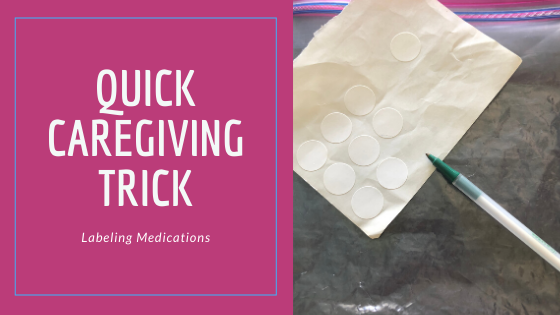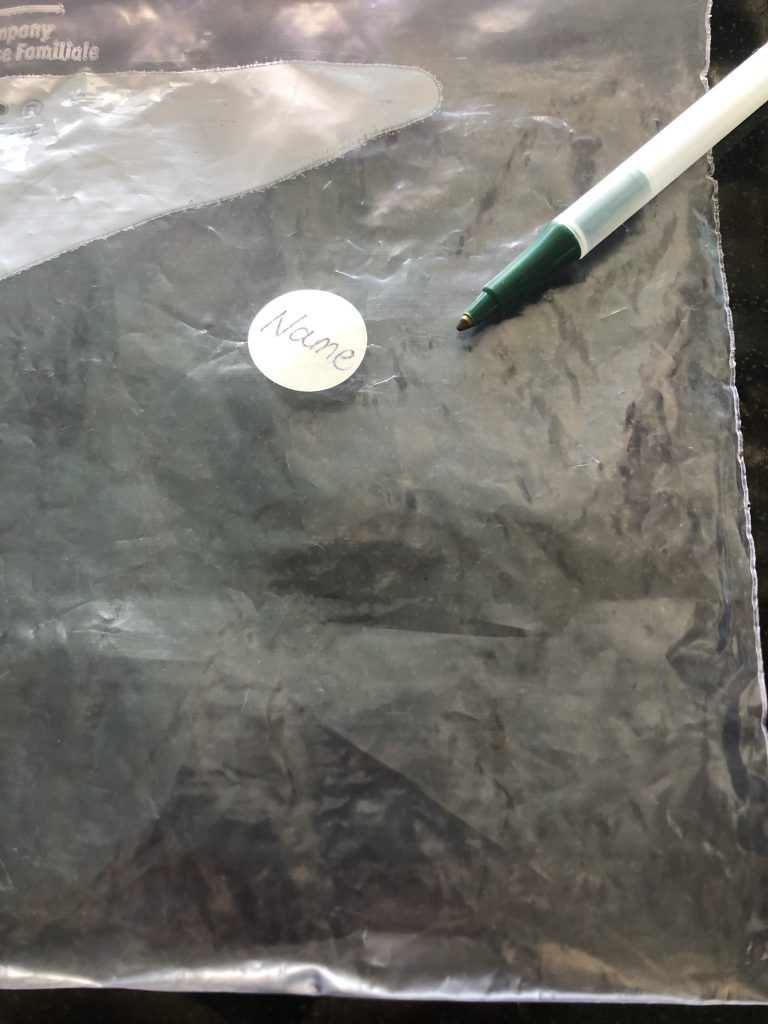Do you have a special system in place to help keep your loved one’s medicine organized? It’s not easy, especially when they take multiple prescriptions plus supplements, vitamins, etc.
I recently had the experience of moving in with my grandmother temporarily while she undergoes treatment for throat cancer. She has lived on her own for almost 10 years since my grandfather passed away and has thusly developed a whole range of systems that help her manage her large home and take care of herself. One of these systems is a clever trick she uses to organize and track her medication.

Like many people who tend to acquire and hold on to things, my grandmother is a person with many containers. Every item has a container, and often, if enough containers with things in them accumulate, she’ll find an even larger container for all those containers.
This seems to be the case with her medications. Her prescriptions (all in their respective prescription bottles) each go in their own little baggy and then in a larger Ziploc bag that is then placed into a box that sits on the floor of her closet.
Every two weeks, she breaks out the box and all the baggies and fills up two plastic pill boxes that include compartments for a.m. and p.m. each day of the week. To be able to easily see which medicine is which when she is going through each baggy to fill her pill boxes, she uses a simple labeling trick:
- Write the name of the medication on the sticky side of a small circular label.
- Place the label inside the plastic baggy so it sticks to the inside and shows the name of the medicine facing out.
- Place the matching prescription bottle in the baggy and store it for future use.

Instead of having to hold up ten different bottles and squint to make out the name of the medicine (or worse, the generic name in even smaller print), she can easily pick up a baggy, see the name, and know she has the right one. Plus, with the label on the inside of the bag, it never accidentally comes off or unsticks.
Both the cancer and the chemo and radiation being used to treat it have contributed to some cognitive impairment with my grandmother, including issues with memory and some difficulty processing and reasoning. The systems she had in place, however, have definitely helped her along the way.
Also see:
Medicine Mix-ups: How to Avoid Them & Questions to Ask
More Quick Caregiving Tricks
Tips for Helping Your Loved One Take Medicine

